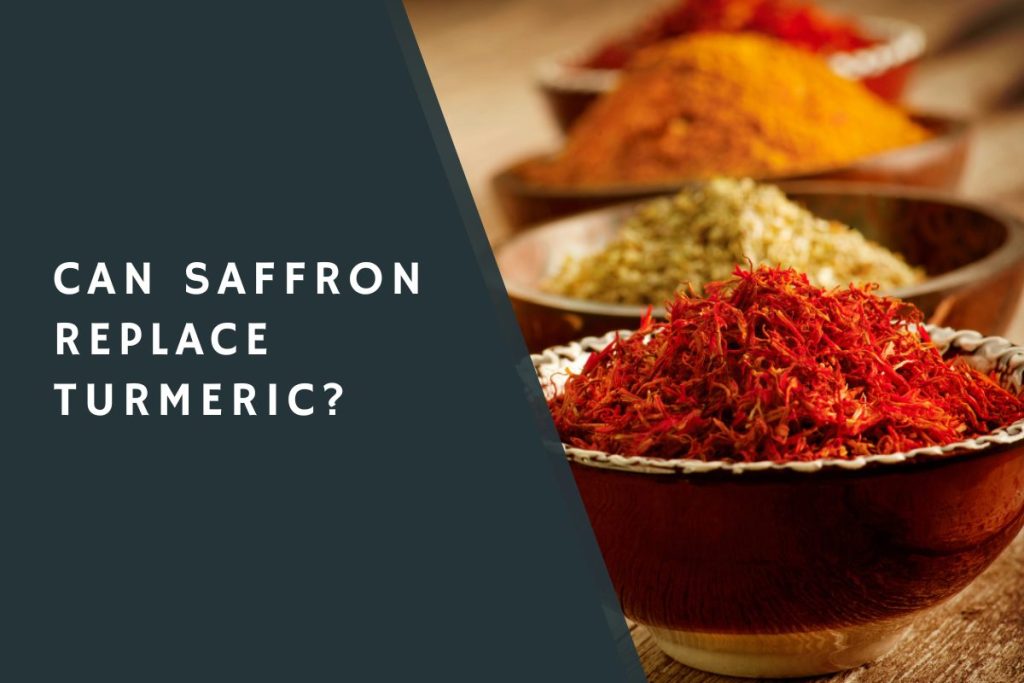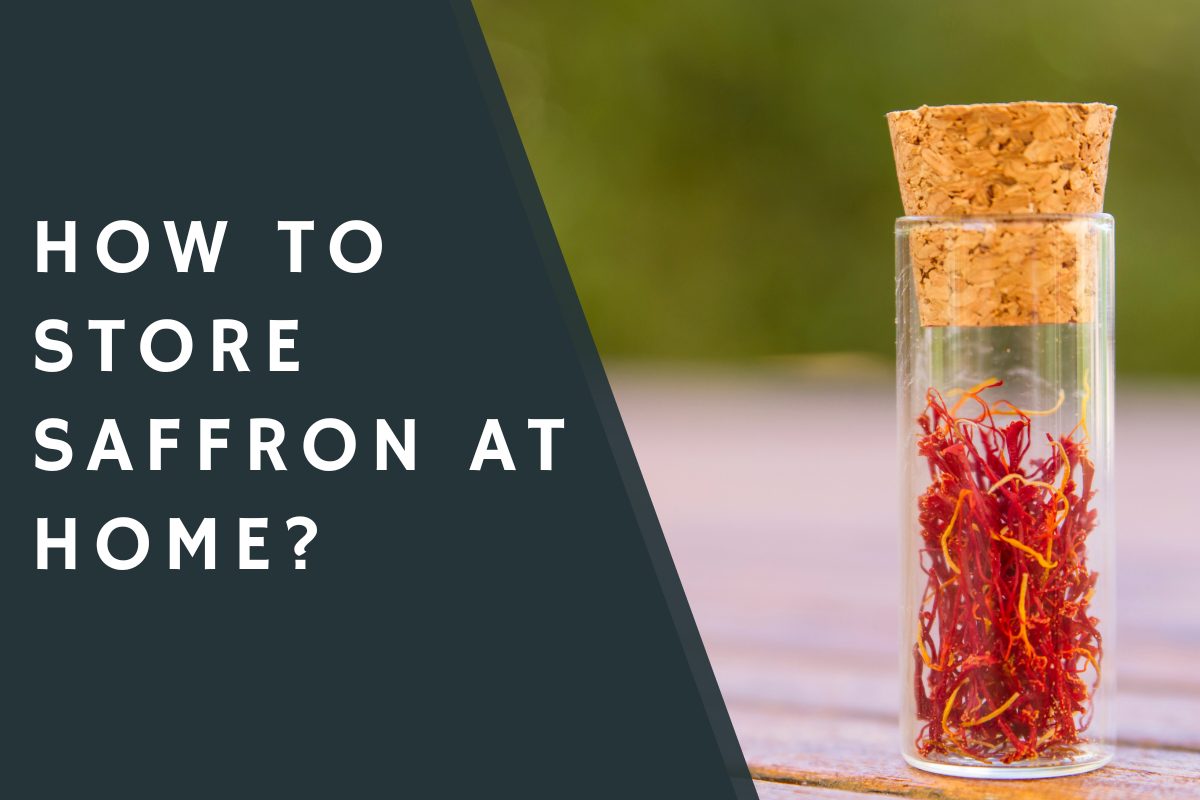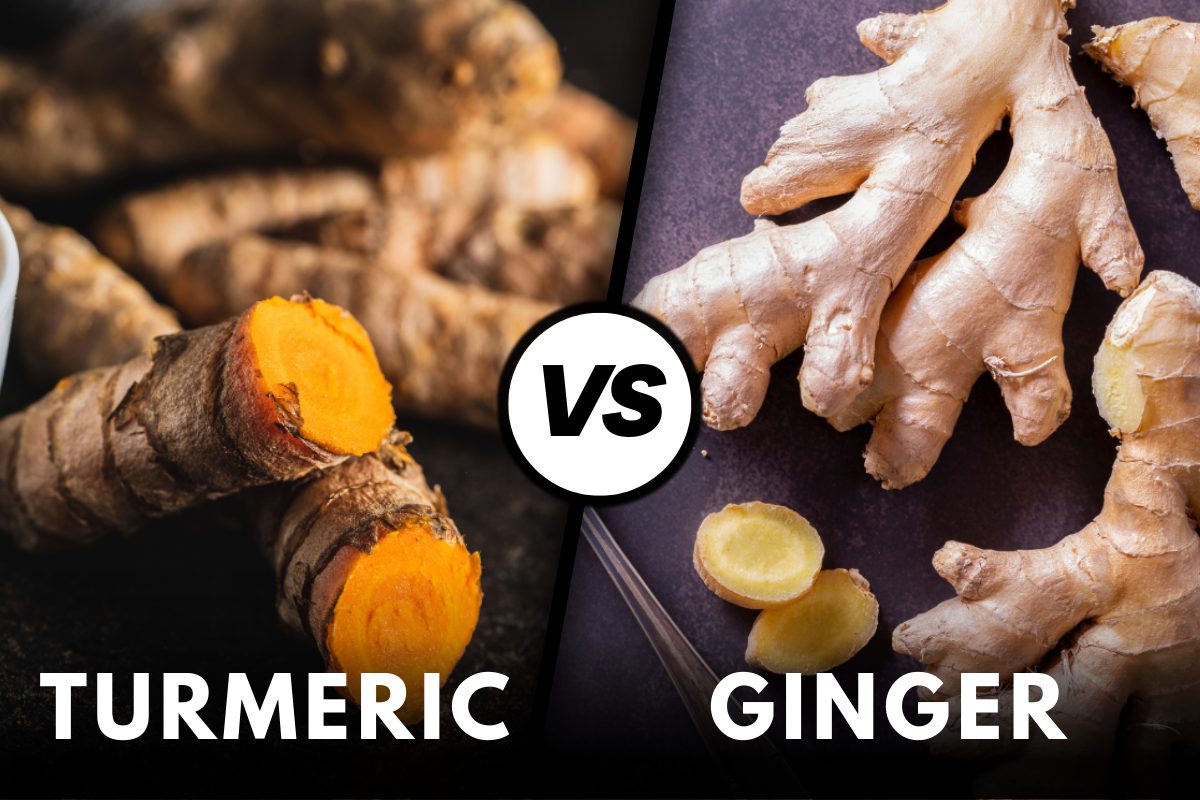Turmeric and saffron are two spices that are commonly used in cooking and have a number of health benefits.
While they are both commonly used in Indian and Middle Eastern cuisine, they have some notable differences in terms of flavor, price, and potential health benefits.
Can Saffron Replace Turmeric?
Yes, saffron can be used as a substitute for turmeric in many recipes. Saffron has a stronger flavor than turmeric and can provide more intense color. Additionally, saffron has a much higher cost than turmeric, so it should be used sparingly.
In this article, we will explore the question of whether saffron can replace turmeric and examine the unique properties of each spice.

See Also: Does Saffron Add Flavor?
What is Turmeric?
Turmeric is a spice that is native to South Asia and is commonly used in Indian, Middle Eastern, and Southeast Asian cuisine.
It has a warm, slightly bitter, and slightly sweet flavor and is often used as a natural food coloring due to its bright yellow-orange color.
Turmeric is often used in curry powders, mustards, and rice dishes and is also a popular ingredient in traditional Ayurvedic medicine.
One of the main active ingredients in turmeric is curcumin, which is a polyphenol with antioxidant, anti-inflammatory, and potential anti-cancer properties.
Some studies have shown that curcumin may have a number of health benefits, including reducing inflammation and oxidative stress, improving brain function, and even potentially helping to prevent or treat some diseases, such as cancer and Alzheimer’s disease.
However, it should be noted that more research is needed to fully understand the potential health benefits of turmeric and curcumin.
What is Saffron?
Saffron is a spice that is made from the stigmas of the crocus flower and is native to Southwest Asia. It is considered to be one of the most expensive spices in the world due to the labor-intensive process of harvesting and processing the stigmas.
Saffron has a distinct flavor and aroma and is often used in traditional dishes such as paella, bouillabaisse, and risotto. It is also used in some traditional medicine systems, including Ayurveda and traditional Chinese medicine.
Saffron contains a number of compounds that have potential health benefits, including antioxidants, anti-inflammatory agents, and compounds that may have anti-tumor properties.
Some studies have suggested that saffron may have a number of potential health benefits, including improving mood and cognitive function, reducing symptoms of PMS and menopause, and even potentially helping to prevent or treat some diseases, such as cancer and cardiovascular disease.
However, more research is needed to fully understand the potential health benefits of saffron.
Can Saffron Replace Turmeric?
So, can saffron replace turmeric in cooking, and have potential health benefits? The short answer is no. While both spices have a number of potential health benefits and are commonly used in cooking, they have some notable differences in terms of flavor, price, and potential health benefits.
Flavor
One of the main differences between turmeric and saffron is its flavor. Turmeric has a warm, slightly bitter, and slightly sweet flavor, while saffron has a distinct flavor and aroma that is often described as floral, earthy, and slightly sweet.
As a result, turmeric and saffron are not interchangeable in terms of flavor and will not have the same effect on a dish if used as a substitute for one another.
Price
Another major difference between turmeric and saffron is their price. Turmeric is relatively inexpensive and can be easily purchased at most grocery stores, while saffron is one of the most expensive spices in the world due to the labor-intensive process of harvesting and processing the stigmas.
As a result, saffron is not a practical or cost-effective substitute for turmeric in cooking.
Potential Health Benefits
While both turmeric and saffron have a number of potential health benefits, they have some notable differences in terms of the specific benefits they may offer.
Turmeric is rich in curcumin, which has been shown to have antioxidant, anti-inflammatory, and potential anti-cancer properties.
Saffron, on the other hand, contains a number of compounds that have potential health benefits, including antioxidants, anti-inflammatory agents, and compounds that may have anti-tumor properties.
It is important to note that more research is needed to fully understand the potential health benefits of both turmeric and saffron and to determine the appropriate dosage and duration of use for specific health conditions.
While both spices may offer some potential health benefits, they should not be used as a replacement for conventional medical treatment and it is always important to consult with a healthcare provider before using any dietary supplement or natural remedy.
Conclusion
In conclusion, while both turmeric and saffron are commonly used in cooking and have a number of potential health benefits, they have some notable differences in terms of flavor, price, and potential health benefits.
As a result, saffron cannot replace turmeric in cooking or has potential health benefits. Both spices offer unique flavors and potential health benefits and can be used in a variety of dishes and natural remedies, but they should not be used as a substitute for one another.
Read Also: Why Is Saffron Rice Yellow?
I am an accomplished tech writer with a passion for simplifying complex technology concepts. With a background in Tech, James has dedicated their career to making the intricacies of the digital world accessible to a broad audience.








